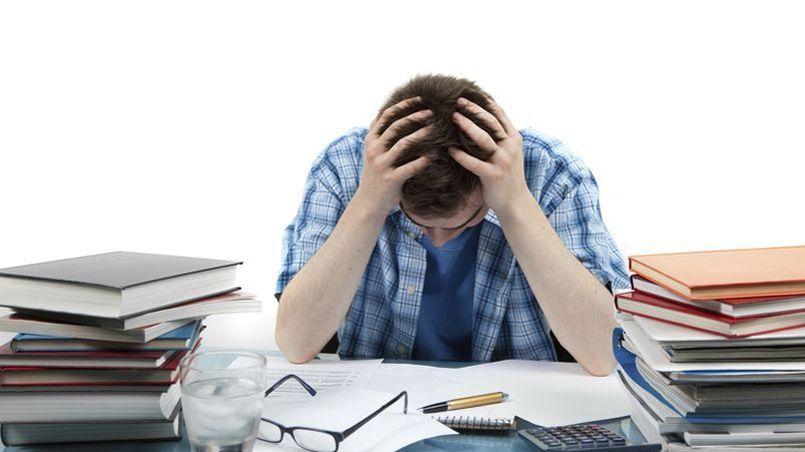
Michèle and I decided to work on the article of Emma Young, a staff writer at BPS Research Digest, entitled « How to cope under pressure according to psychology ? ».
Distinction between positive and negative stress mindset
According to Bariéty and Coury (1963), stress is due to the attack of the organism by an emotional, physical or psychological factor. This attack produces a disorder, which is usually compensated by an adaptation work. The origin of stress can be traumatic, infectious, physical, chemical or psychological. More generally, stress corresponds to a non-specific response given by the body at any request (Selye, 1974).
We all have been confronted with a stressful situation one day, like end-of-term exams, an oral, a job interview or a medical exam. Facing stress, we can react in two different ways : either we think that stress can be positive for us, so we are in a positive mentality, or we think that stress is negative, which is a negative mentality. In the first point of view, stress is considered as a help to concentrate, to strengthen our motivation, and it enables us to learn and succeed in our projects. This way of considering stress leads us to develop adaptation strategies and to enhance our performances. On the contrary, if we are in a negative mentality, our performances decrease and we loose our energy.
In other words, we are prone to be less stressed after tough life events if we are in the positive state of mind. This sorte of mentality prevents us to react impulsively in front of issues.
What to do to cope with stress ?
If you are anxious, watch a horror movie ! Why ? The fact of being afraid makes our brain more calm and enables us to regulate our emotions. A study mentionned by Emma Young showed that participants who watched a movie increasing their stress were more proned to be positive facing a stressful social situation. Moreover, they had a greater cognitive flexibility, which means that they were able to find solutions regarding the situation and overcome their stress. When you are under pressure, you also have to value yourselves instead of putting you down. If you think that you are bad and incompetent, you are going to act like that, because you will tend to satisfy these expectations. Your performances will be reduced and you won’t succeed.
Sometimes, pressure can be felt because of a time constraint : in this situation, we act like ourselves. For example, a selfish person will behave more selfish, and a lazy person will be lazier. It is important to know this fact in order to react better under pressure.
If a friend of yours ends up in a stressful situation, you can send him a simple SMS, just to let him know that you think about him, without giving any advice (for example, « it’s raining today », or « I need to buy groceries »). The fact of knowing that a person you like cares about you can help you reducing your blood pressure, and so, facing the stressful situation. Giving advice can be considered as an insult, that is why it is better to stay mundane in the text message.
Besides, our physiological reactions in front of a stressful event can be soothed simply by visualising or being with somebody we like (for example, a love partner or a best friend).
An other method can be used to reduce stress, and it is called « modulation technique of physiological agitation ». This technique was employed in the study of Christian Swann (mentionned by Emma Young in her article) : he asked athletes to write on a paper what they thought and felt during their last best performance. Some of them mentioned that they didn’t think about the negative consequences of failure. Following this experiment, Swann asked his participants to play a game in which they can earn money. Before starting this game, the athletes had to imagine that they had already won the jackpot and try to keep it rather than win it. By doing that, they were much less likely to choke under pressure during the test. Swann conclued that modifying the way of considering what is at stake in a stressful situation can decrease the risk of being overwhelmed.
To conclude, there are different ways of facing stressful situations : be optimistic, value yourselves, try to be with someone you like, imagine that you already succeeded without thinking about failure, and watch horror movies !
Hoping that this could help you for your exams (and for other stuffs) !
Words we learned
End-of-term exams : partiels
Facing : face à
To strengthen : renforcer, consolider
To end up : se retrouver, finir
Mundane : banal
To overcome : surmonter
Be at stake : être en jeu
To be overwhelmed : être submergé par les émotions
Bibliography
Bariéty, M. & Coury, C. (1963). Histoire de la médecine. Culture plus, 735.
Selye, H. (1974). Stress sans détresse. La Presse, 29.
Link for the article : https://digest.bps.org.uk/2019/09/17/how-to-cope-under-pressure-according-to-psychology/
Michèle TARIDEC and Nina DOUSSE – M2 PPCECC – 2019-2020